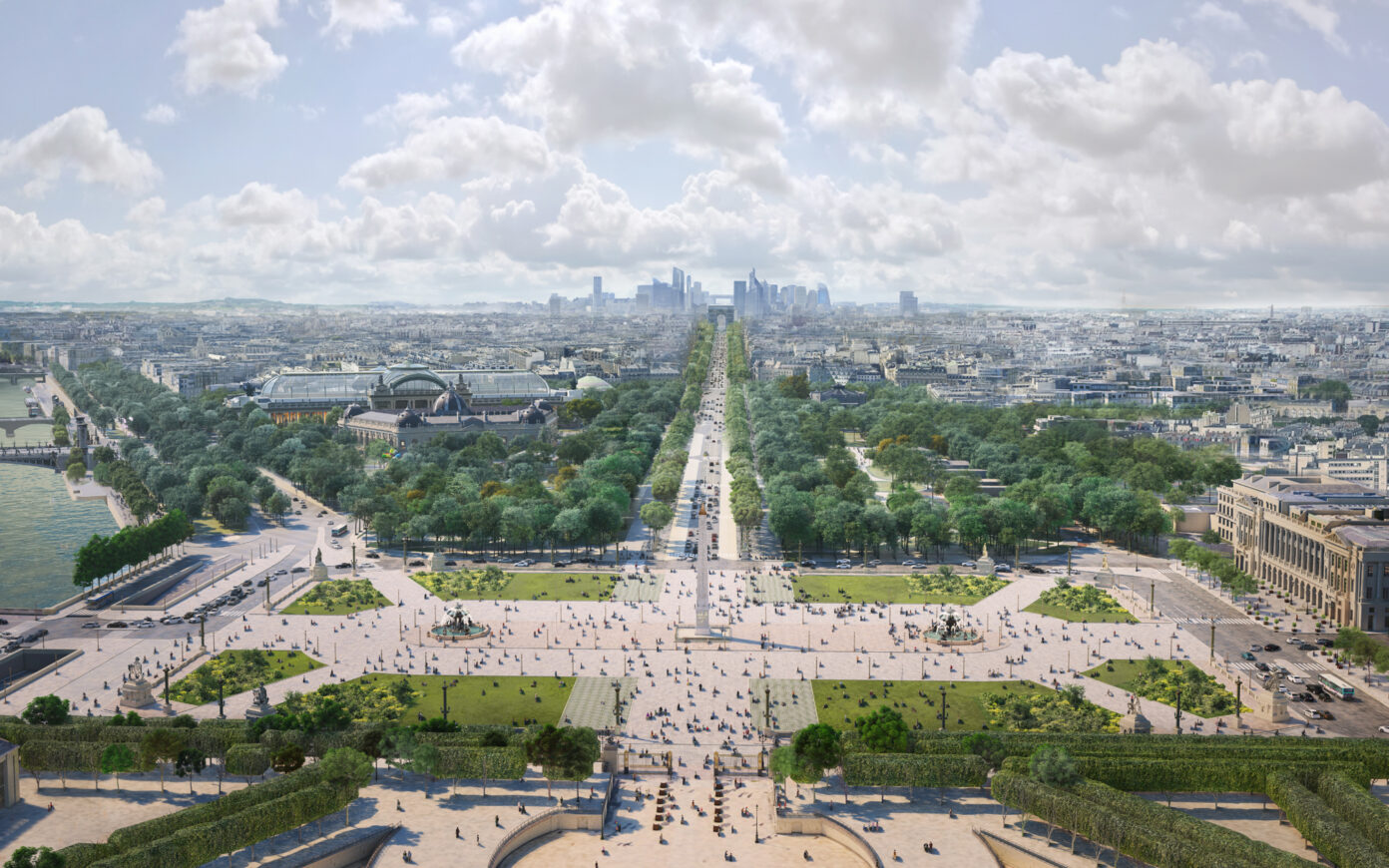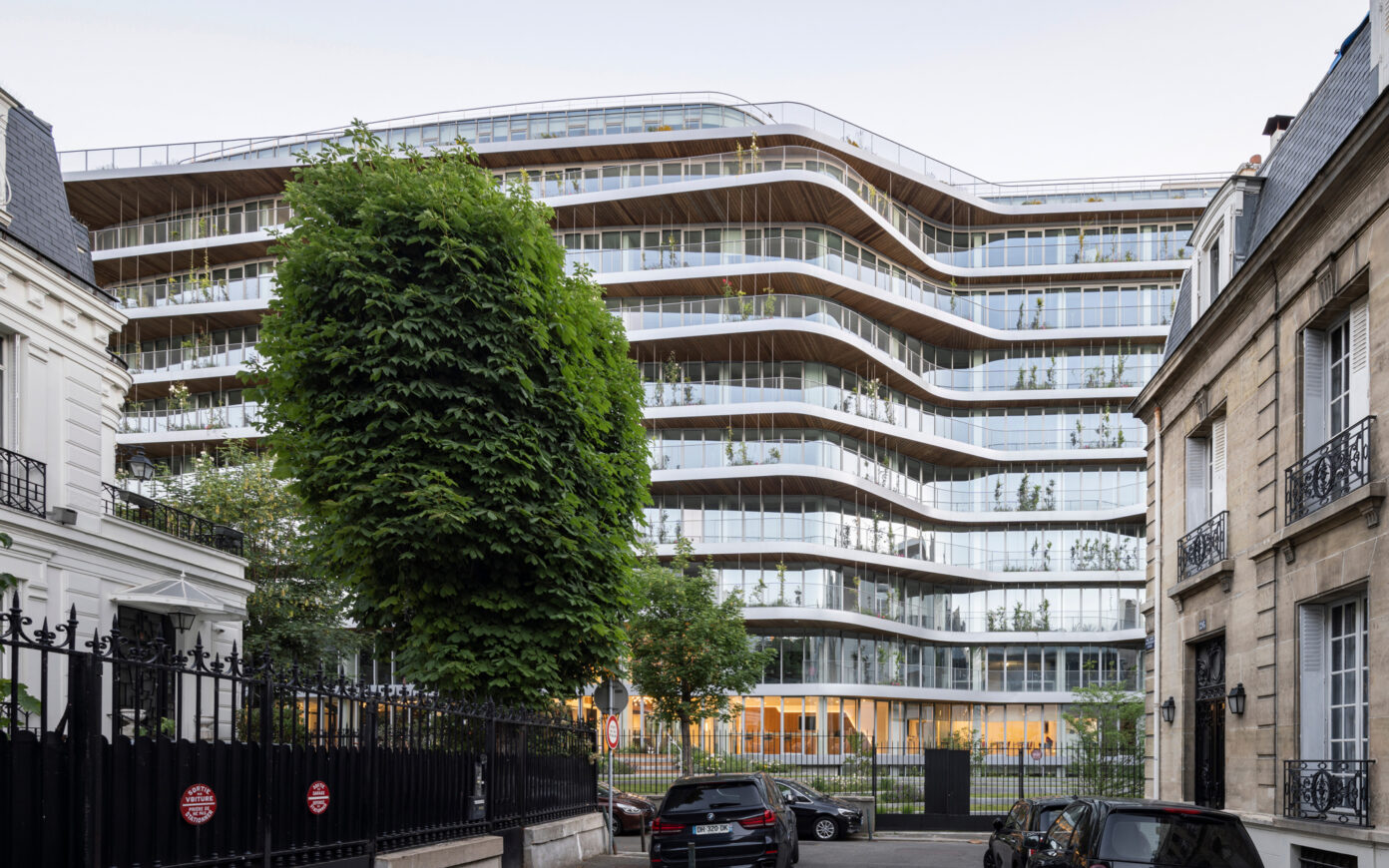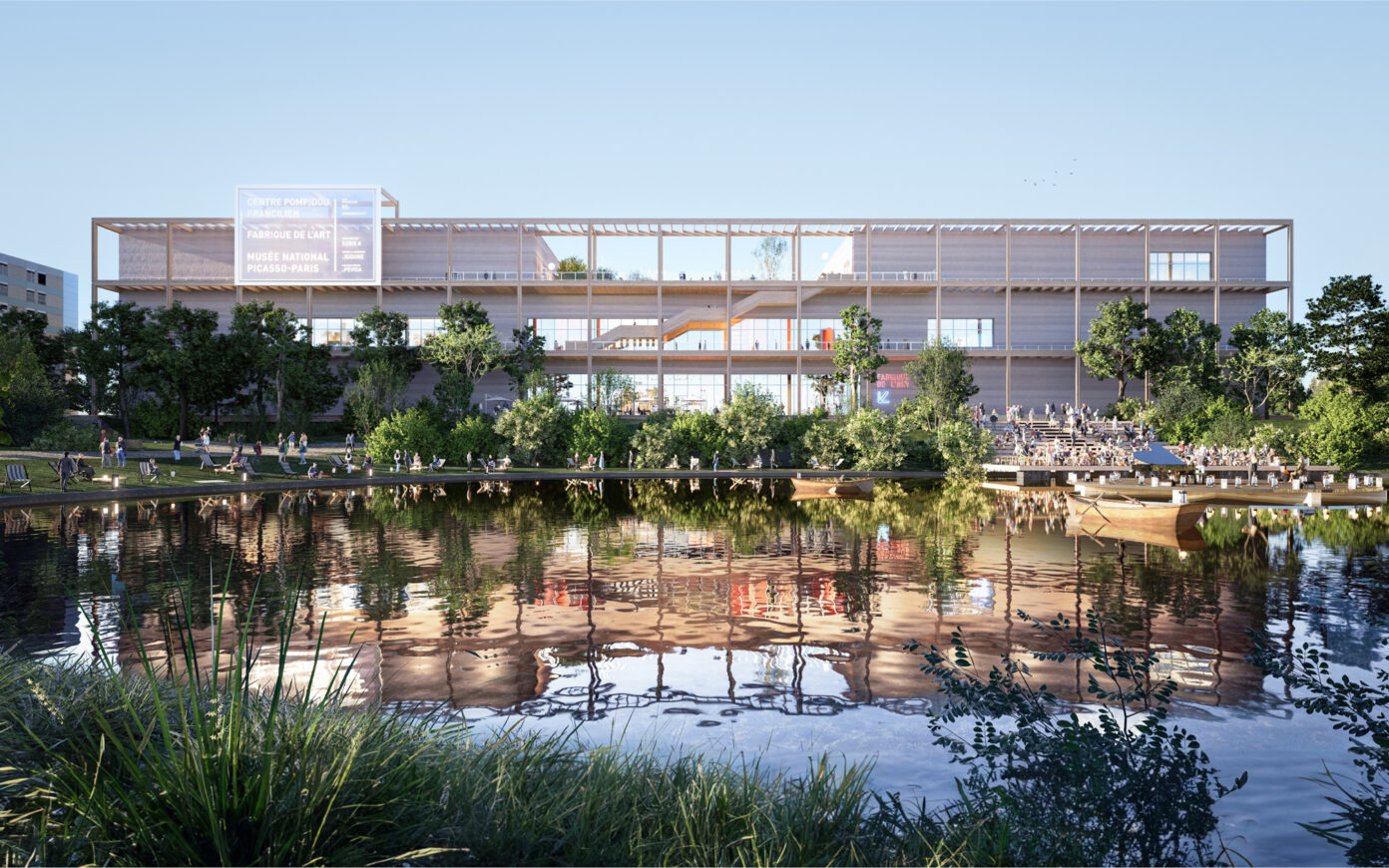
Restoring the Avenue to its historical position
The Avenue de la Grande-Armée is the central segment of the historic axis of Paris, a perspective designed in 1670 by André Le Nôtre for Louis XIV. Punctuated by a succession of mythical monuments, from the Louvre to the Arche de La Défense, via the Obélisque and the Arc de Triomphe, it concentrates not only transport infrastructures, but also places of political, economic and cultural influence. At the heart of this axis, the Avenue de la Grande-Armée is the only segment that has not been redeveloped for almost a century, yet the last decade has seen an unprecedented dynamic of projects: the new Porte Maillot is emerging, the reenchantment of the Champs-Élysées has begun, as have the projects for the Allées de Neuilly and the Parc de La Défense.
From Belle Époque to urban highway
Grande-Armée is a bygone emblem of the Belle Époque. Created in the mid-19th century, it’s a wide avenue with two shady promenades under a quadruple row of trees; the cafés and restaurants on the artery leading from the Champs-Élysées to the Bois de Boulogne are bustling with activity, and it’s fast becoming a popular social spot. Parisians discovered modern leisure activities and came to enjoy the ephemeral entertainment venues set up on the area’s undevelopable land, or the major popular events and parades. The avenue was also the preferred location for major bicycle and motorcycle manufacturers, and even saw the creation of France’s first bicycle path!
With the rise of the automobile, Porte Maillot was transformed into a road interchange, and the avenue, with its widened central roadway, lost its planted promenade, its connection to the woods and, little by little, its popular events. The ills from which it suffers result from this transformation into an urban freeway: the avenue has become hostile to pedestrians and exposed to levels of noise pollution and atmospheric pollution close to those of the Périphérique; the spirit of the promenade has disappeared, access to the Bois de Boulogne is hindered by the Périphérique and the creation of the Porte Maillot traffic circle, while the mono-specialization in the motorized two-wheeler trade makes it difficult to coexist with other uses.
Reviving the Grande-Armée identity to meet the challenges of the 21st century
To fully participate in the urban dynamics of this historic thoroughfare and meet the challenges of the 21st century city, PCA-STREAM has drawn up a strategy to project the avenue de la Grande-Armée into the future, based on three principles that celebrate its original identity: rediscovering the spirit of the promenade, reconnecting with woodland and leisure activities, and creating a showcase for new forms of mobility.
By 2030, the avenue could once again be one of Parisians’ favorite promenades, thanks to a reworking of its profile (freeing up sidewalks, pedestrianizing the contra-alleys, demineralizing the soil, changing to four car lanes with the creation of double bike lanes and wider crosswalks), which would return almost two hectares of surface area to pedestrians. The route could also be punctuated by new uses and amenities, such as terraces, dining pavilions, whose aesthetic could reinterpret that of the Belle Époque, and plant lounges. Soil demineralization, combined with various forms of vegetation, such as these lounges, improves the avenue’s biological continuity and plays an active role in urban cooling, a guarantee of comfort that is increasingly necessary in cities in the face of climate change.
To recapture the quality of use and appeal of the avenue during the Belle Époque, when it was both the gateway to leisure and the green gateway to Paris, the Bois de Boulogne and the avenue could finally be reconnected by the creation of a new symbolic gateway and the development of a path punctuated by kiosks, children’s play areas and a large belvedere.
Finally, everything is converging to make the Avenue de la Grande-Armée the showcase and demonstrator of the urban mobility revolution: its geographical position, its historical identity, the announced end of the internal combustion engine, its ecosystem, the growing modal share of soft and electric mobility, the creation of the RER vélo and the arrival of Éole. A temple to new mobility could be created here, with a mega-bike station under the Palais des Congrès forecourt, a bike school and rental services on the Square Parodi side and all along the historic « avenue des cycles ».
The Comité Grande Armée
The Comité Grande Armée was launched in April 2022, with the support of local elected officials and the City. It brings together owners, tenants and residents of the Avenue who are actively involved in its future transformation.
The Committee’s aim is to create a « Vision 2030 » for the Avenue de la Grande Armée: a development project capable of making the Avenue more pleasant, greener and more aesthetically pleasing, but also a reflection on its vocation and identity. Bringing together the Avenue’s main stakeholders (elected representatives, local residents, institutions, investors and users) is one of the essential conditions for achieving this, while taking everyone’s interests into account. An innovative co-construction method.
During the 12 months of work, the Grande Armée Committee called on the architectural firm PCA-STREAM to carry out an architectural and urban study for its future redevelopment, based on consultation with some one hundred players on the Avenue and a detailed study of its history and identity. The « Vision 2030 » presented here takes all these contributions into account.
Founding members
Groupama Immobilier, Gecina, BNP Paribas Cardif, Société Générale Assurances, Viparis, AG2R LA MONDIALE, Invivo, Groupe Chapat, Groupe Madar, FREO Group
Members
Sanofi, BCG, Swiss Life AM, Tristan Vyskoc, Patrick Bosque
Honorary members
Geoffroy Boulard (17th arrondissement), Francis Szpiner (16th arrondissement), Brigitte Kuster (former Member of Parliament, former Mayor of the 17th arrondissement)
















